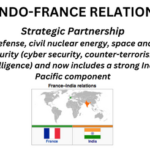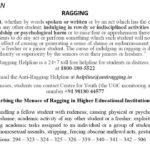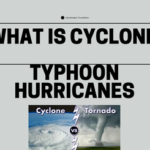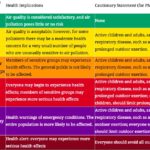Manipur Under Siege: President’s Rule Imposed Amid Deepening Unrest

President’s Rule imposed in Manipur and the state assembly placed under suspended animation.
LEARNING WITH TIMES/WITHOUT CLASS/BASICS
In India, President of India empowered to promulgate three types of emergency(Part 18) available under the constitution. These are:
(a) National emergency under Art 352 (proclamation of emergency).
(b) Failure of constitutional machinery in a state under Article 356 (President’s rule).
(c) Financial emergency under Article 360.
Duty of union to protect states (Article 355)
Article 355 lays down that “it shall be the duty of the union to protect every state against external aggression and internal disturbance and to ensure that the government of every state is carried on in accordance with the provisions of this constitution.”
It is this duty in performance of which the Centre takes over the government of state under article 356. In case of failure of the constitutional machinery in the state.
Article 365 also provides that where any state failed to comply with or to give effect to union directives; it shall be lawful for the president to hold that such a situation arisen in which the state government cannot carried on in accordance with the constitutional provisions.
Article 356: President’s rule in states
‘‘Failure of constitutional machinery in state”. If the President on governor’s report, or otherwise satisfied that a situation arisen in which government of a state can’t be carried on in accordance with the constitutional provisions, he may issue a proclamation to that effect.
- President may assume to himself all or any of the functions of the state government, or powers vested in governor, or anybody or authority in the state other than state legislature.
- President may declare that powers of legislature of state shall be exercisable by parliament.
- The president may make such incidental and consequential provisions as may appear to him to be necessary or desirable for giving effect to the object of proclamation.
- The president cannot, however, assume to himself, any of the powers vested in high court, or to suspend any constitutional provision relating to it.
The proclamation issued under article. 356 may revoked or varied by the president on a subsequent proclamation.
Duration of proclamation under article 356
A proclamation relating to state emergency shall be laid before each house of parliament. And unless both houses approve it by a resolution, it shall cease to have effect (except the one which revokes the earlier one) at the expiration of two months, unless in the meantime, it has been approved by resolutions of both houses of parliament. If approved, it will be valid for six months.
If any such proclamation is issued at the time when lok sabha is dissolved or the dissolution takes place during the period of two months and the proclamation is passed by the Rajya sabha but not by the lok sabha, it shall cease to operate at the expiry of 30 days from the date on which the new lok sabha meets, unless before the expiry of 30 days it has also been passed by the lok sabha.
The duration of proclamation can extended by 6 months each time by both houses of parliament. It passes resolutions approving its continuance the maximum period for which a proclamation can remain in operation is 3 years from the date it is issued under article 356(1). Thereafter, the President’s rule must come to an end and the normal constitutional machinery to be restored in the state.
Article 356(5) [inserted by 44th amendment], however, lays down that beyond 1 year a proclamation can be continued. Only if emergency under article 352 were in operation in the whole of India. Or in the whole or any part of the concerned state, and the election commission certifies that it is not possible to hold elections to the state legislature. This provision has put a restraint on the power of parliament to extend a proclamation. It can extended beyond one year only if special circumstances exist.
Exercise of legislative powers under proclamation issued under article 356 (article 357)
When a proclamation is made under article 356(1), the powers of the state legislature are to be exercised by parliament. Parliament can confer on the president the power to make laws for the states. Parliament may also authorize the president to delegate such powers to any other authority as specified by him . The president may authorize (when the lok sabha is not in session), expenditure from the state consolidated fund. Pending its sanction by parliament.
Thus, the life of a law made by parliament/ president during the operation of article 356 does not come to an end automatically . An action by the state legislature is necessary to change these laws.
Distinction between article 352 and article 356
- Article 352 (‘national or internal emergency’) restricts central government’s intervention to a situation of war, external aggression, or armed rebellion. Article 356 (‘state emergency’) applies to a situation of failure of constitutional machinery in a state.
- That means under article 352, the relationship of all states with the centre undergoes a change. But, under article 356, the relationship of only the concerned state with the centre is affected.
- Under article 356, the state legislature remains suspended and dissolved. Laws for the state made by parliament and the governor administers the state on behalf of the president.
In case of national emergency, the state governments and legislatures continue to function normally. And exercise the powers assigned to them under the constitution. All that happens under article 352 is that the centre gets concurrent powers of legislation in state matters. And thus it can make the states follow a uniform all-India policy. - While article 352 affects fundamental rights, fundamental rights remain unaffected under article. 356.
- A proclamation under article 352 to approved by parliament within a month and thereafter every six months. But, no maximum duration prescribed for the operation of such a proclamation. Thus, it can continued indefinitely.
The proclamation under article 356 to approved by parliament within two months. And thereafter every six months, and the maximum period for which it can remain in force is three years. ] - Judicial review of presidential action under article 356. Despite the broad ambit of the power under article 356, a presidential proclamation could challenged. If power exercised mala fide, or on “constitutionally or legally prohibited” grounds, or for “extraneous or collateral purposes.”
In the historic judgment – S.R. Bommai versus Union of India; the supreme court has laid down various guidelines in regard to the use of article356. Which would put a check on arbitrary dismissal of state governments in future.And strengthen the federal structure of Indian polity.
The verdict concluded that the power of the President to dismiss a State government is not absolute. The verdict said the President should exercise the power only after his proclamation approved by both Houses of Parliament. - Also the Court made it amply clear that a Presidential Proclamation under Article 356 is subject to judicial review.
- The verdict also categorically ruled that the floor of the Assembly is the only forum that should test the majority of the government of the day.
- Sarkaria commission’s recommendations The Sarkaria commission recommended that the president’s rule can used only in the event of the political crisis, internal subversion, physical break-down, and, non-compliance with constitutional directives of the union executive. The commission pointed out that approval of the parliament to secured before imposing the president’s rule.
The commission recommended that before invoking article 356, a warning in specific terms should given to the erring state. All alternatives should exhausted to contain the situation and all attempts to resolve the crisis at the state level should made. Such alternatives may dispensed with only case of extreme urgency. The governor’s report under article 356(1) should be speaking document and the material facts/grounds on which article 356 invoked must made an integral part of the proclamation issued under article 356(1) for the purpose of judicial review.







0 Comments